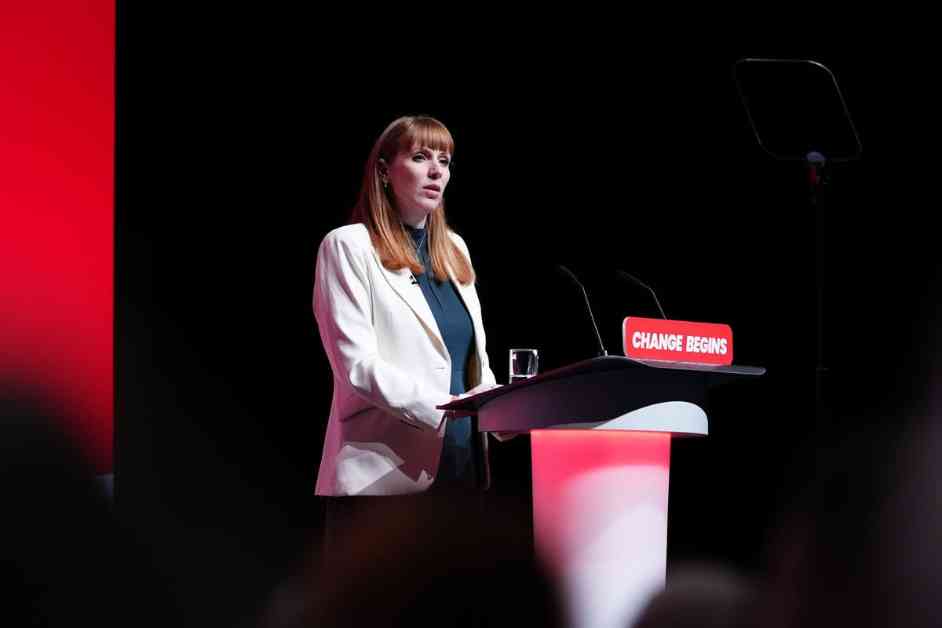Labour Denies Reports of Angela Rayner Hiring Personal Photographer
In the midst of a row over donations and gifts for ministers, Labour officials have refuted claims that Deputy Prime Minister Angela Rayner has hired a personal photographer. The controversy arose after a report by the Daily Mail alleged that Rayner had enlisted a vanity photographer to document her work. However, the Ministry of Housing, Communities and Local Government (MHCLG) clarified that the photographer was actually hired to capture the department’s activities, not solely focus on Rayner.
According to the MHCLG, it is common practice for government departments to employ official photographers to communicate the work of the department and its ministers to the public. This particular role falls under the civil service and is part of the MHCLG’s communications team. The junior civil servant hired for the position is said to be compensated within the grade 7 band, with a minimum salary of £57,000 annually. It is important to note that Rayner was not directly involved in the recruitment process for the photographer, as confirmed by the PA news agency.
Debunking Misconceptions Surrounding the Hire
The hiring of a photographer by Angela Rayner has sparked controversy and led to misconceptions about the nature of the role. While some media outlets have portrayed it as a personal indulgence, the MHCLG’s clarification sheds light on the actual purpose of the position. By documenting the work of the department as a whole, including its ministers, the photographer plays a vital role in enhancing transparency and accountability in government activities.
It is crucial to distinguish between personal vanity projects and legitimate communications efforts within government departments. In an era where visual storytelling and digital engagement are key components of effective communication, having an official photographer to capture important moments and initiatives can serve as a valuable asset. By disseminating these images to the public, the government can foster greater public understanding and engagement with its work.
Addressing Criticisms and Defending Transparency
As the controversy surrounding the hire of a photographer continues to unfold, Angela Rayner and other Labour officials have faced criticism over their acceptance of gifts and donations. In response to these concerns, Rayner acknowledged the public’s frustration and anger but defended the necessity of donations in the political landscape. She highlighted the substantial costs associated with running for office and emphasized the importance of transparency in disclosing such contributions.
While the acceptance of gifts and donations has been a longstanding practice in politics, it remains a contentious issue that raises questions about ethics and accountability. Critics argue that these contributions can create conflicts of interest and undermine public trust in elected officials. On the other hand, supporters maintain that donations are essential for funding political campaigns and activities, allowing parties to effectively compete in elections and engage with constituents.
In light of the ongoing scrutiny, it is imperative for politicians to uphold high standards of integrity and ethical conduct. Transparency and accountability should be paramount principles guiding their actions, particularly when it comes to financial matters and interactions with external stakeholders. By openly disclosing gifts, donations, and other forms of support, politicians can demonstrate their commitment to serving the public interest and upholding the values of democracy.
Looking Ahead: Balancing Communication and Accountability
As the debate surrounding Angela Rayner’s photographer hire unfolds, it serves as a reminder of the delicate balance between communication efforts and accountability in government. While visual storytelling can be a powerful tool for engaging the public and showcasing the work of elected officials, it must be accompanied by a commitment to transparency and ethical conduct. By clarifying the purpose of the photographer role and addressing criticisms with openness and integrity, Labour can navigate these challenges and uphold the trust of the electorate.












